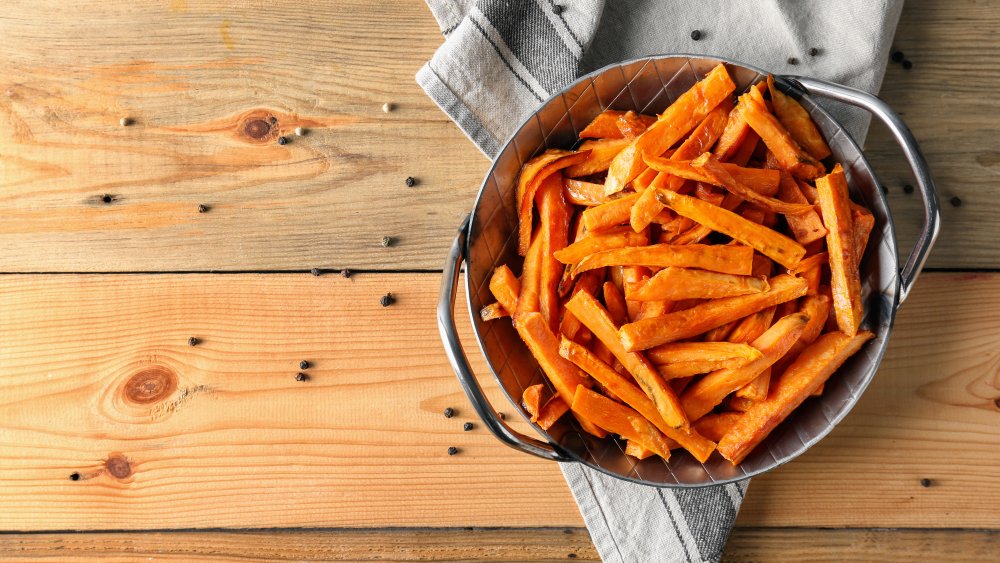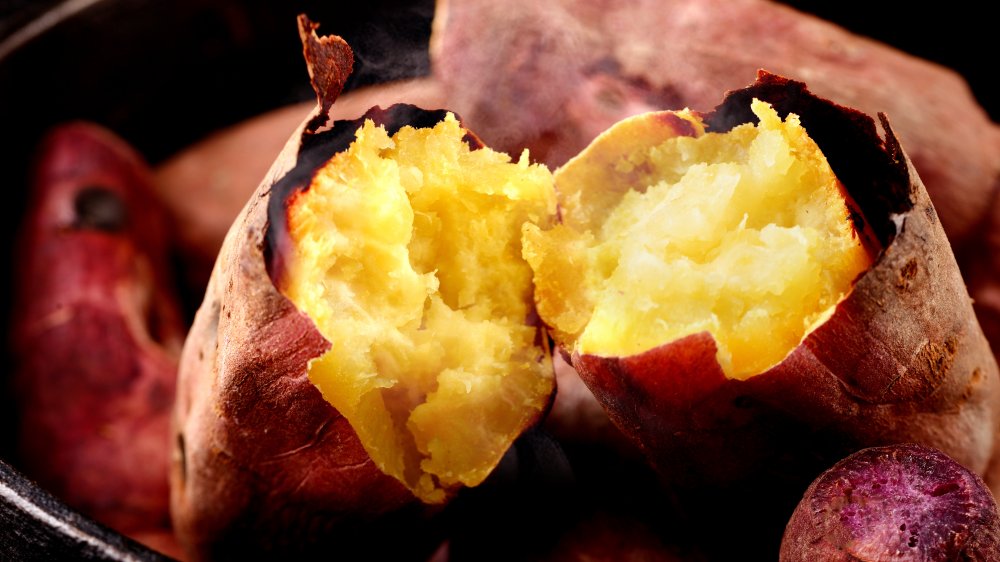Are Sweet Potatoes Really Healthier Than Other Potatoes?
Sweet potatoes and regular potatoes are both humble and versatile root vegetables that lend themselves to lots of different preparations and recipes. But while regular potatoes have been a reliable staple (and a "meat and potatoes" metaphor), American farmers and consumers have gone sweet for sweet potatoes. According to the U.S. Department of Agriculture, farms nationwide cultivated sweet potatoes 37.6 percent more in 2017 than in 2012 — that's a lot of taters (via Martha Stewart)!
The health benefits of sweet potatoes, which are high in fiber and rich in vitamins A and C, have spurred the demand (via the USDA). But sweet potatoes and white potatoes each have lots of health benefits.
Both are comparable in terms of calories (about 90 for one spud), protein (about 2 grams), fat (about 0.15 grams), and carbs (about 21 grams). An average sweet potato contains roughly 1 gram of fiber more than a white potato, as well as about 107 percent of the recommended daily value (DV) of vitamin A, 22 percent of the recommended DV of vitamin C, and 17 percent of the recommended DV of vitamin B6 (via Healthline).
White potatoes are higher in potassium, with 17 percent of the recommended DV. In addition to vitamins C and B6, they also contain glycoalkaloids, compounds that in some studies inhibit the formation of cancer. Tomatoes and eggplants also contain glycoalkaloids (via the National Library of Medicine).
Tone down the butter, cream, and sugar for the most potato benefits
A more significant difference between sweet potatoes and white potatoes appears in their glycemic index (GI), a measurement of how a food affects blood sugar. Foods with GI of 70 or higher cause a more rapid increase in blood sugar.
Sweet potatoes may have a GI of 44 to 94, depending on how they're cooked. So if you have diabetes or another blood sugar issue, you may want to make sweet potatoes your preferred spud. Boiled red potatoes have a GI of 89, and baked Russet potatoes have a GI of 111.
However, a loaded baked potato or potatoes mashed with butter and cream ramps up the calories, just like sweet potatoes prepared with sugar and marshmallows. A healthier option for either potato would be boiling them instead of baking them, keeping the skin on, and serving them with fresh herbs, spices, lean proteins, and non-starchy vegetables.


